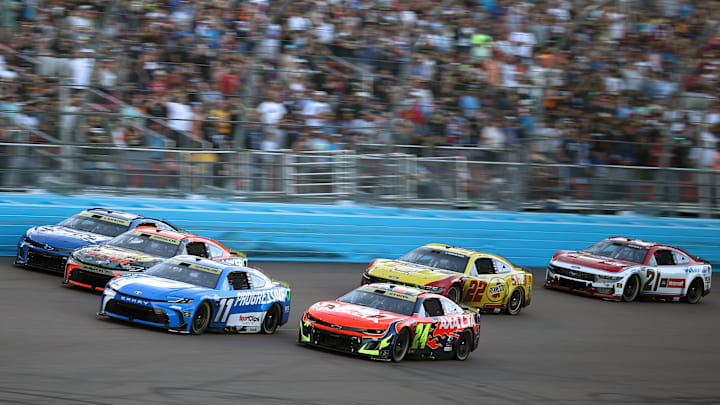In what's almost certain to be the final season of the series' controversial knockout playoff format, NASCAR's 2025 championship weekend at Phoenix Raceway was perhaps only a fitting sendoff to the system that everybody is sick and tired of.
The Craftsman Truck Series race got its desired outcome, with Corey Heim capping off one of the most dominant campaigns in series history with his 12th win and the title. Even then, it required a seven-wide pass on an overtime restart after a late caution bunched up the field.
On Saturday and Sunday, the ugliness of the winner-take-all finale reared its head. Connor Zilisch, despite winning 10 races, lost the Xfinity Series title to Jesse Love, who bookended the campaign with his only pair of wins.
Then in the Cup Series, Denny Hamlin was just over two laps away from finally capturing his elusive championship before William Byron blew a tire, and Kyle Larson jumped him on pit strategy to earn his second Bill France Cup without leading a lap.
Both the Xfinity Series and Cup Series title outcomes also raise some uncomfortable observations about the full-season points that nobody wants to talk about.
Jesse Love just re-enacted Terry Labonte's 1996, while William Byron was the real victim on Sunday (again)
Let's start with the Xfinity Series. Surely, without those pesky playoffs, there's no way a driver with only two wins could ever win a championship over a driver with 10 wins, right? No, that's impossible.
Oh, wait, except for the fact that this exact scenario played out in the Cup Series in 1996, when Terry Labonte beat Jeff Gordon. It's also not much different from the 1985 title outcome, when Darrell Waltrip with three wins beat Bill Elliott with 11.
Oh, but you see, those were different and okay, because those drivers scored the most points all season. Well, that's the whole problem: they shouldn't have scored the most points, because out of every major motorsport, only NASCAR is clueless as to how design a points system where maximizing gain is rewarded more than minimizing loss.
All it would have taken is two random dumb unlucky wrecks during the year and Zilisch wouldn't have scored the most points either, kind of like what happened to Byron at Las Vegas Motor Speedway three weeks ago with Ty Dillon and again on Sunday.
And while everybody was busy throwing pity parties for Hamlin, it was lost in all the commotion that the playoffs were the only reason he had a shot at a title to begin with.
Byron, on the other hand, led those "real" standings by 11 points entering the season finale. If we're assuming that the season plays out the exact same way without the playoffs (which it wouldn't have, but don't tell fans that), then that blown tire with two laps to go would have cost him the full-season championship. Oh, and guess who ended up winning it instead? Larson.
So no matter how you slice it, misfortune decided this championship. Welcome to NASCAR. It happens, playoffs or not.
It happened in 1992 when Davey Allison lost to Alan Kulwicki because Ernie Irvan wrecked him in the season finale. It happened in 1997 when the difference between Jeff Gordon and Dale Jarrett ultimately boiled down to a wrongful in-race penalty for the latter at Watkins Glen International.
The best driver, the most "deserving" driver, or even the driver who puts himself in the right position when it matters the most, isn't always going to win the title. And if there's anything this past weekend should teach NASCAR fans, it's that that's true under any points system.
